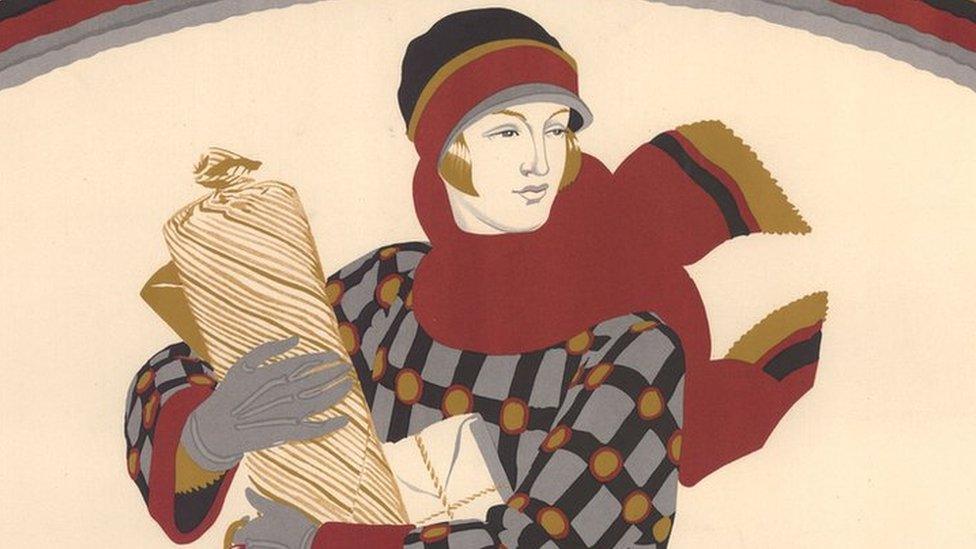'A most unusual experience': A year of lockdown in London
- Published
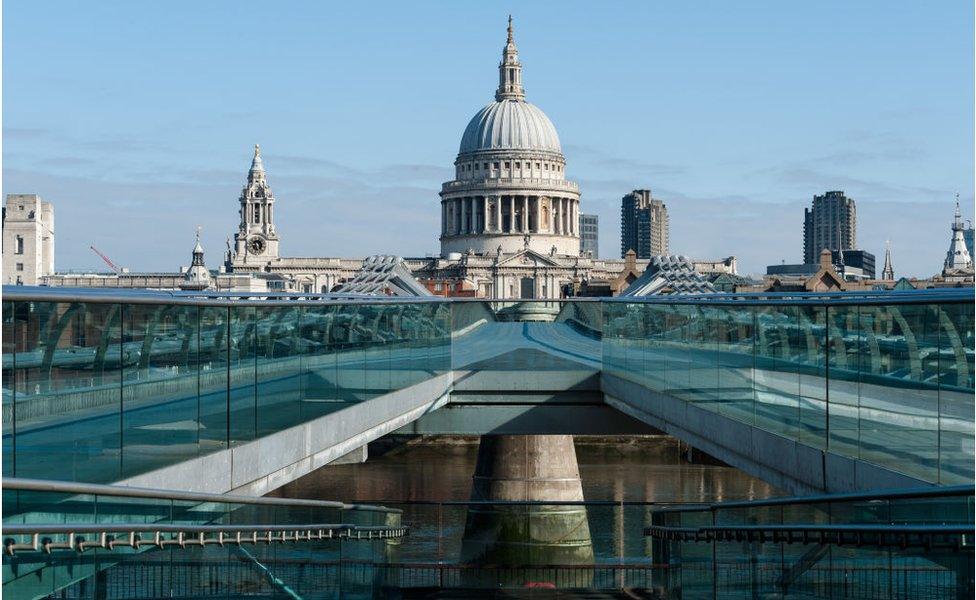
The Millennium Bridge, pictured four weeks into the first lockdown
It has been a year. Twelve months in which thousands of Londoners lost their lives, lost their loved ones, lost their jobs, their health, their social circle, their daily routine.
A year of stiff upper lips and Blitz spirit and singing happy birthday while washing hands, and not singing happy birthday when it's actually someone's birthday.
A year of exercising in the living room, of teaching the kids maths, of meeting your mates at the pub by drinking at the computer and pretending not to look at yourself on camera.
A year of wearing a mask like it's an ordinary thing to do. Using phrases like "herd immunity" and "flattening the curve"; "social distancing" and "R numbers".
A year to accept that people would die too soon. And to anticipate the desolation of grieving alone.
This is a year of Londoners in lockdown, in their own words.
'Passengers appreciate us more'
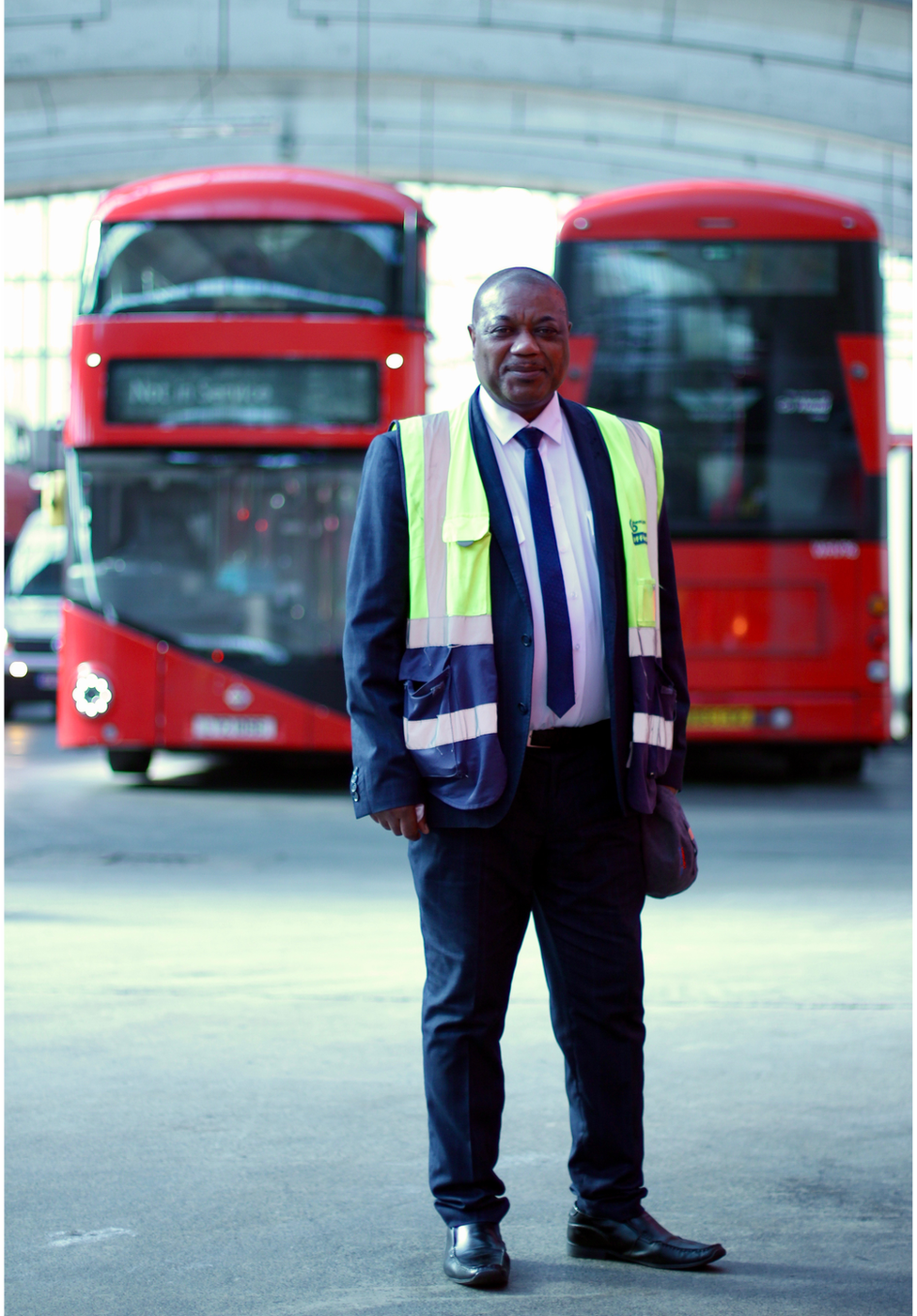
Go-Ahead bus driver Claude Parchment still has to remind one or two passengers to wear face masks
Claude Parchment is a bus driver who lives in Dagenham. He refuses to specify his age, other than "late 60s". That's his prerogative.
"We're getting the nurses to work.
"We're getting the police officers, the shop workers who are feeding us, the delivery drivers, the dustbin men to work daily. They're helping us to live, we're helping them to get to work.
"People's behaviour towards drivers has changed significantly since the pandemic. They are more polite, more thankful, more appreciative of the job we're doing.
"We still get one or two passengers we have to remind to put a face mask on. And the odd one who wants to make a fuss about it.
"When you're getting on and getting off the bus, we really appreciate it when you say 'good morning driver, thank you driver.'
"People getting off the bus say, 'stay safe, driver'. That really makes us feel motivated to come back the next day and do the job over again.
"Thank you all for that."
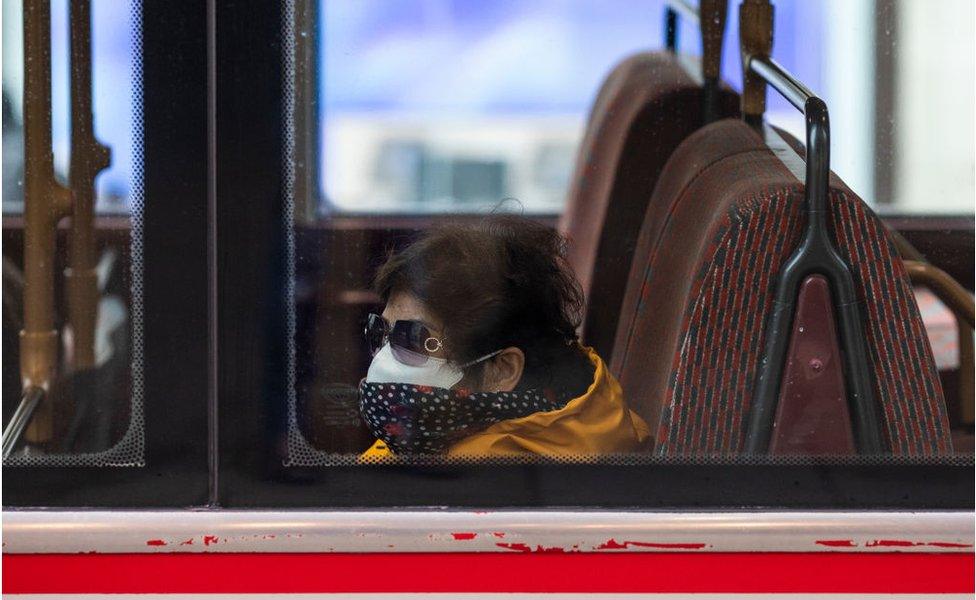
Bus, Tube and railway services were scaled back in March 2020
'It wasn't her time'
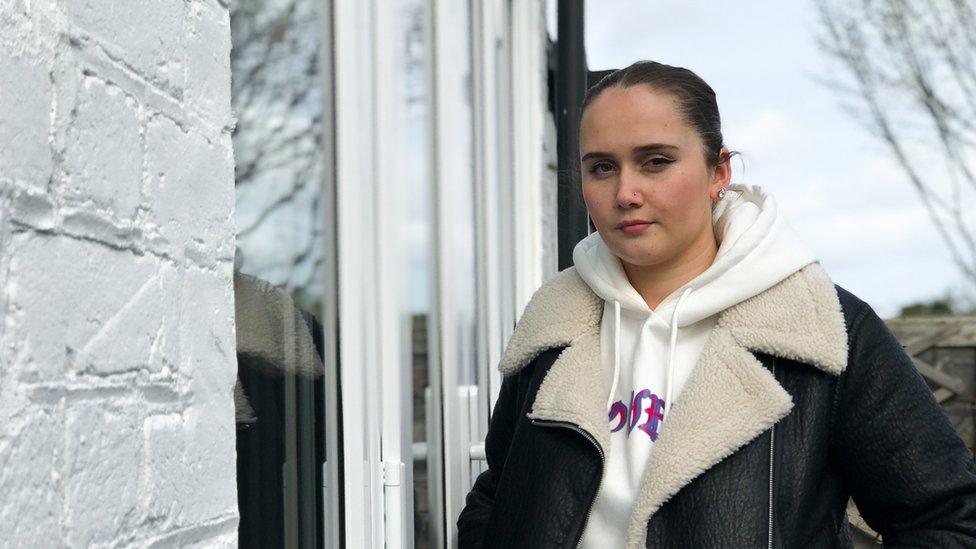
Beth Sutton's family had to postpone her grandmother's funeral
Beth Sutton, 20, lives in Nunhead and is a healthcare worker at King's College Hospital. Her 78-year-old grandmother Eve died with the virus.
"This year has been difficult. I lost Grandma in the first wave back in March. It still feels very raw.
"Me and my mum both felt like it wasn't her time yet because she was fit. She was probably fitter than me.
"The family, not being allowed under Covid restrictions to gather for a funeral, decided to postpone the ceremony."
They have Eve's ashes.
"I've not grieved properly, it's just not normal. We haven't had our closure.
"I've been with patients who have passed away from Covid and that's just triggered the memories. It reminds me of what I went through and I know that their family is going through the same thing.
"My grandma worked in the same hospital that I work in, so I do it with a lot of pride.
"I think that's what keeps me going."
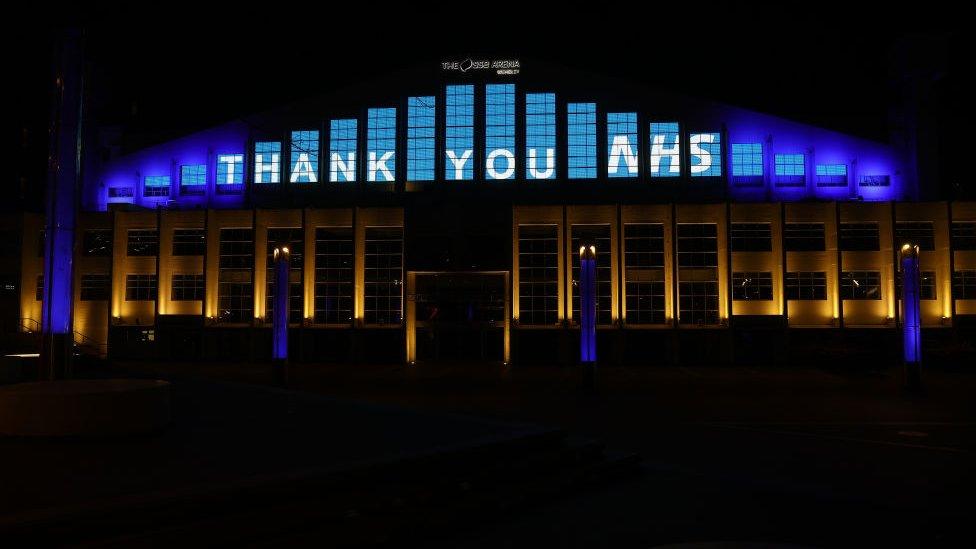
Blue lights were shown at the Wembley Arena to thank NHS workers

The usually busy M25 was very quiet at the beginning of the second lockdown in November
'Now we're seen as vital'
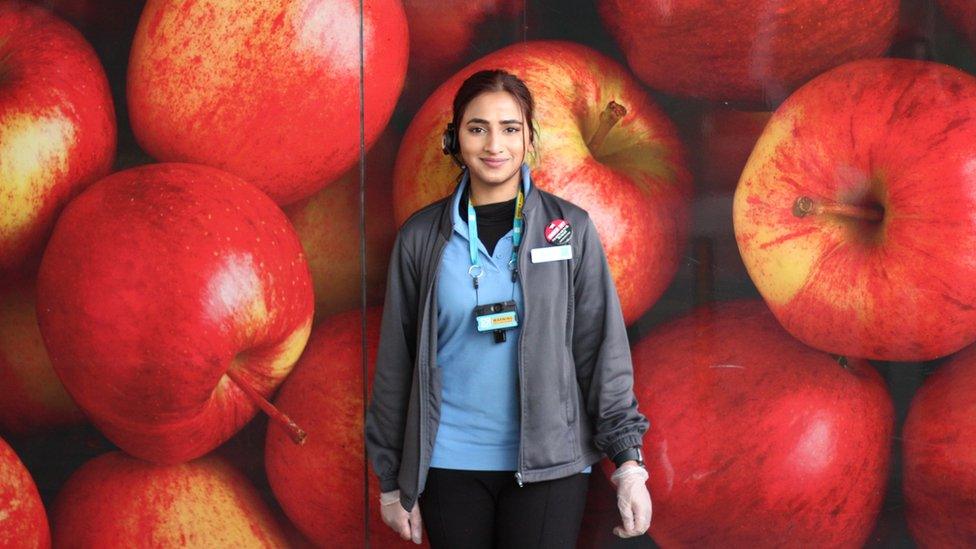
Khadija Begum says supermarket workers are now seen as a vital part of the community
Khadija Begum works at a Co-op shop. She's 26 and lives near Pontoon Dock DLR in Silvertown, east London.
"Everything has just drastically changed, you know.
"During the first lockdown and this last lockdown supermarkets are one of the only things that have remained open.
"Throughout the pandemic, I feel like the community has come together more strongly.
"We always just felt like shop-workers I think, but now we're seen as a vital and crucial part of the community, which is great.
"While others are working from home and are not putting themselves at risk, we are.
"We take the risk and we do that for our customers and for the wider community."
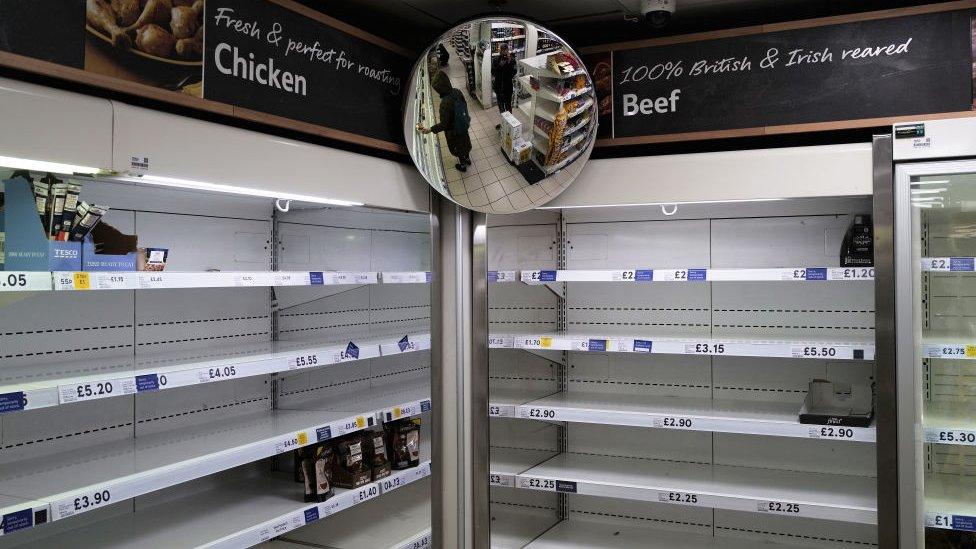
Early in the pandemic, panic buying led to shelves being empty of essential items
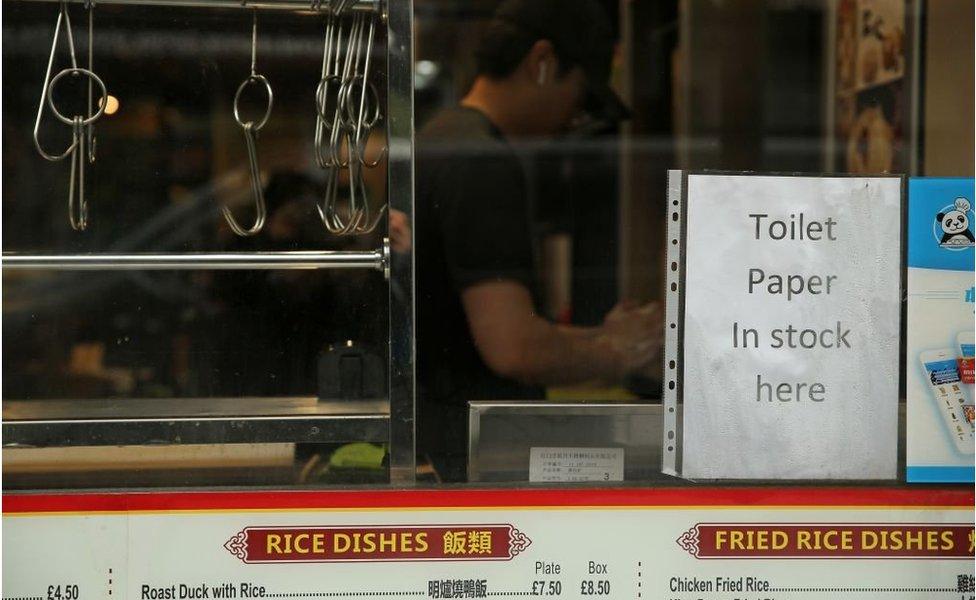
Even a Chinese restaurant got in on the act as people stockpiled toilets rolls, hand sanitizer and paracetamol
'We're all making history'
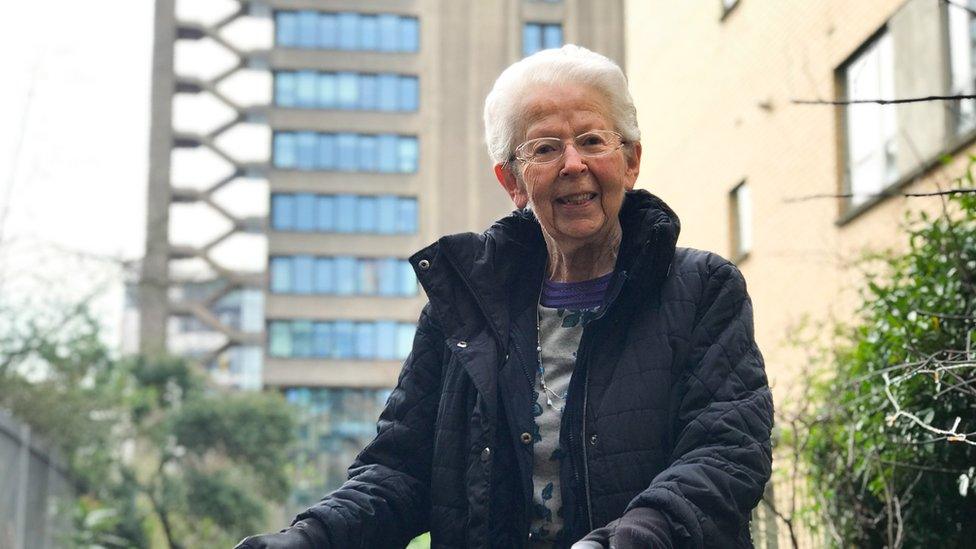
Naomi Falkson misses her friends, her family, her dentist and her optician
Naomi Falkson,89, from Barbican, has been shielding all year, during which time she has only seen her daughter.
"I'm missing friends and relatives desperately. It's a been a most unusual experience that we're all making history.
"I haven't been able to have my eyes tested or my teeth seen to, those things I miss. But missing seeing people is the most upsetting thing.
"Having grown up through the war we got used to being disciplined and being told what to do, and we did it. We accepted the facts and that's how I've been ever since.
"I'm looking forward to getting some fish and chips on 21 June."
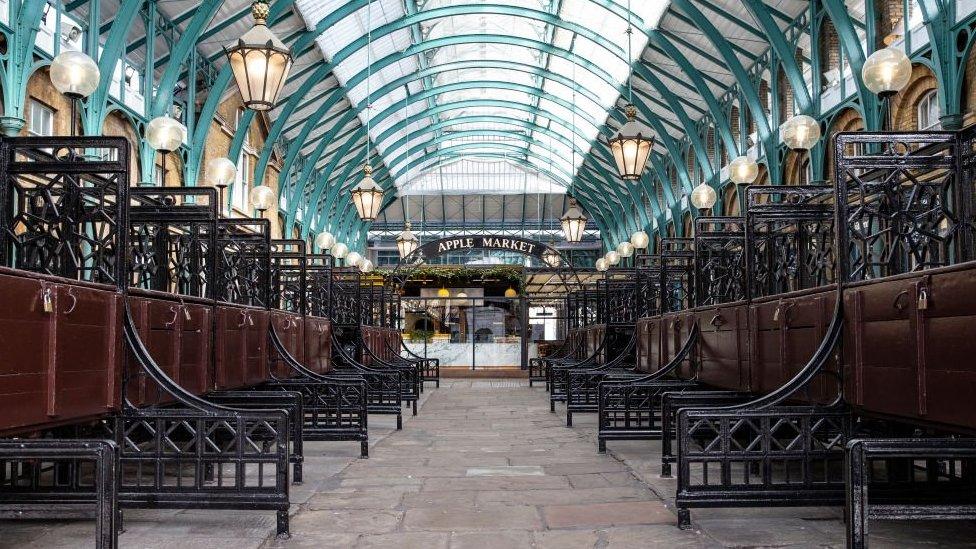
Tourist areas such as Covent Garden have been strangely empty
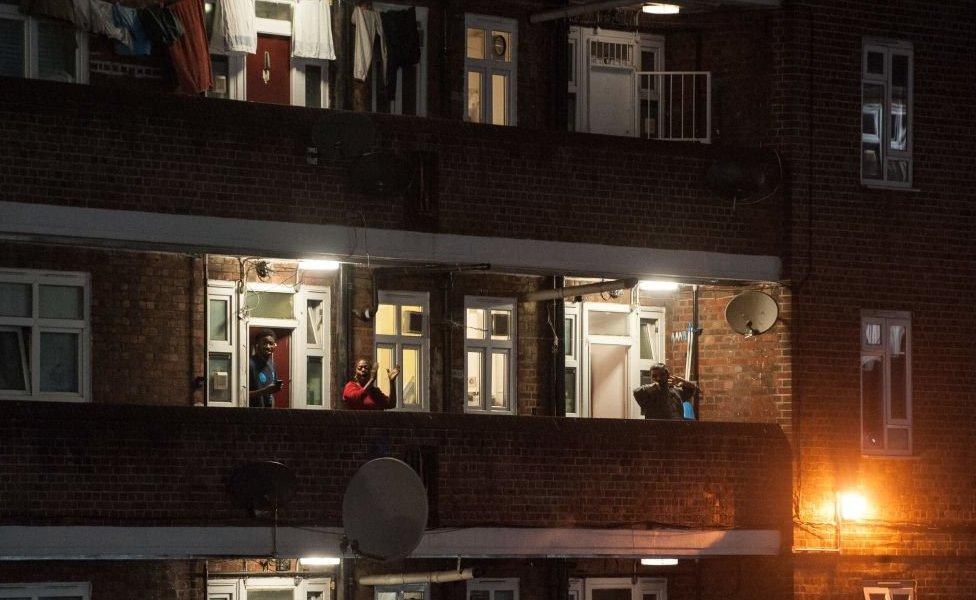
Residents of the Tulse Hill Estate in south London applauding NHS staff
'I lost everything'
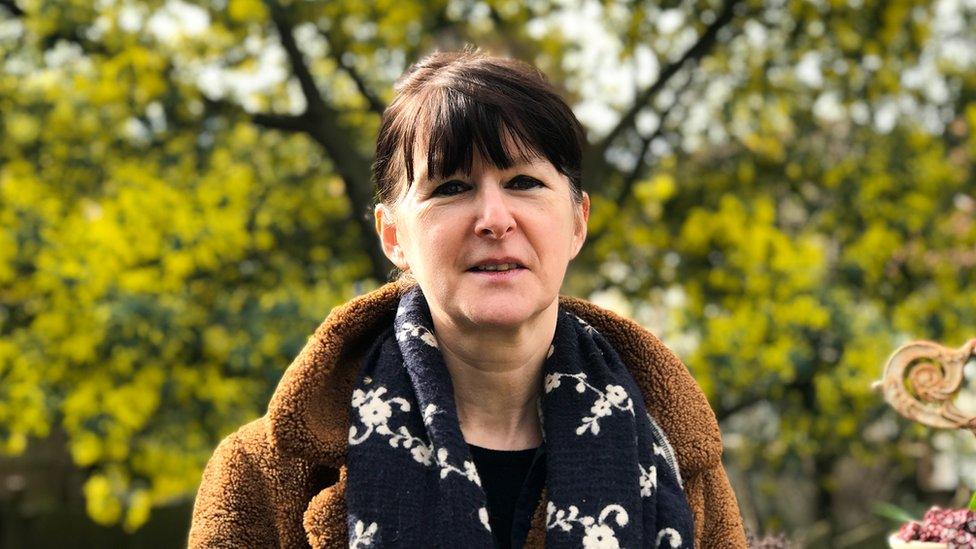
With help from social enterprise Beam, she is now training to be a teaching assistant
Michèle, 55, from West Norwood, ran a flower shop, but it was forced to close and she went out of business permanently. With help from a social enterprise, she is now training to be a teaching assistant.
"I've been a florist in London for 17 years. It was really nice; I had a good connection with customers.
"We did great bunches and we had a beautiful display outside the shop," she says.
"I lost everything. It was very depressing; I was scared to lose my flat and worried I would end up on the street.
"I'll miss having a business but look forward to helping children in school.
"I will still grow lots of flowers at home."
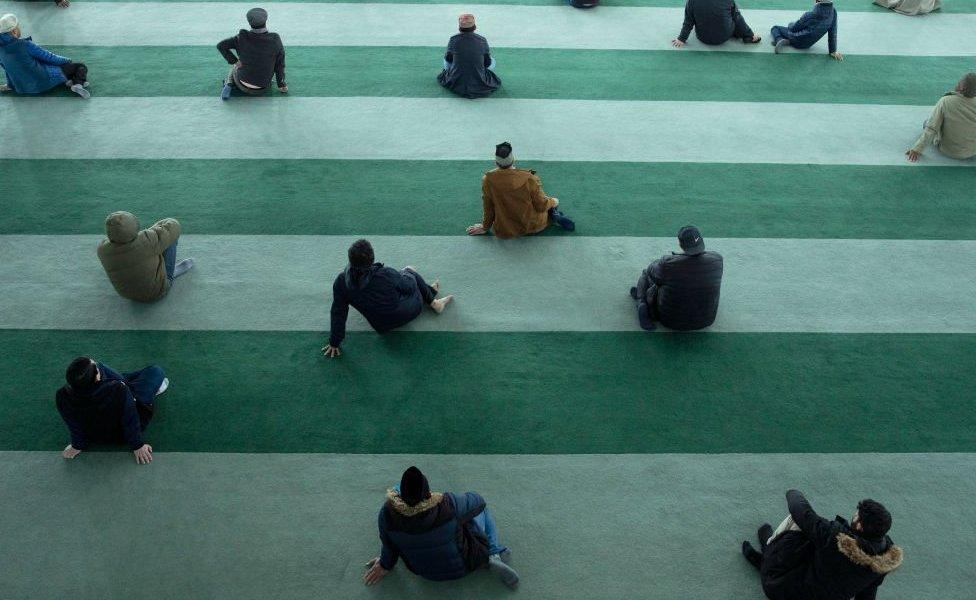
Worshippers at the Baitul Futuh Mosque keeping their distance, to help prevent the spread of Covid-19
'I know how to pick myself up'
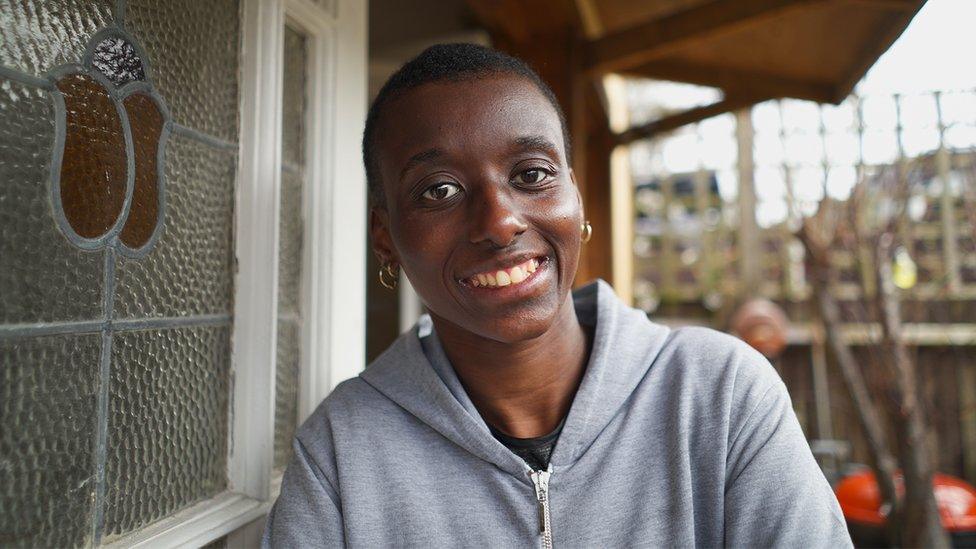
Theatre usher Aisha Edwards says furlough has been tough, but she knows she'll go back to her job one day
Aisha Edwards, 26, from Catford, has been furloughed from her job as a theatre usher at the Young Vic. All performances were cancelled.
"I've always wanted to work in a theatre. It's like my passion and dream because you're seeing people, and the smiles on their faces."
She has a learning disability, and believes the job gave her a sense of independence and stability. "I liked showing people to their seats and watching the performances.
"Furlough has been hard, but I know we're going to go back one day.
"There are some down moments, but I know how to pick myself back up. I listen to music, go for walks and surround myself with my family at home."
All images subject to copyright
Related topics
- Published22 February 2021
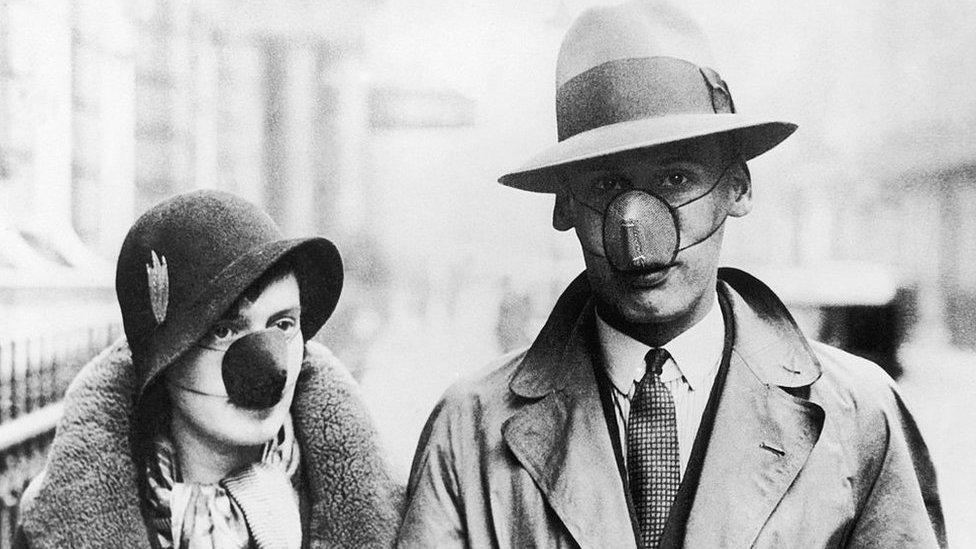
- Published13 October 2017
